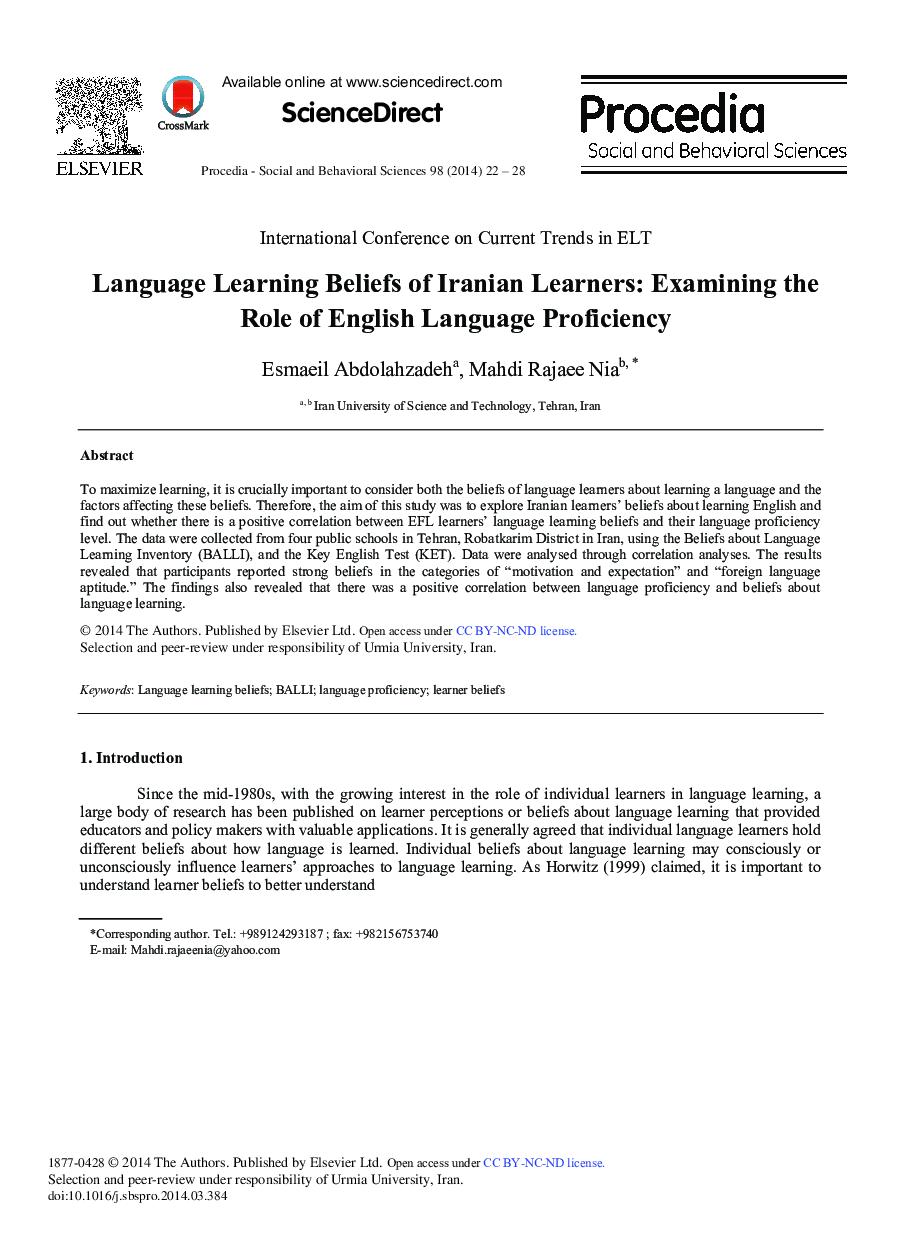| Article ID | Journal | Published Year | Pages | File Type |
|---|---|---|---|---|
| 1118411 | Procedia - Social and Behavioral Sciences | 2014 | 7 Pages |
To maximize learning, it is crucially important to consider both the beliefs of language learners about learning a language and the factors affecting these beliefs. Therefore, the aim of this study was to explore Iranian learners’ beliefs about learning English and find out whether there is a positive correlation between EFL learners’ language learning beliefs and their language proficiency level. The data were collected from four public schools in Tehran, Robatkarim District in Iran, using the Beliefs about Language Learning Inventory (BALLI), and the Key English Test (KET).Data were analysed through correlation analyses. The results revealed that participants reportedstrong beliefs in the categories of “motivation and expectation” and “foreign language aptitude.” The findings also revealed that there was a positive correlation between language proficiency and beliefs about language learning.
